Scratching the Surface: Minor Sciences and Kinetic Electronics
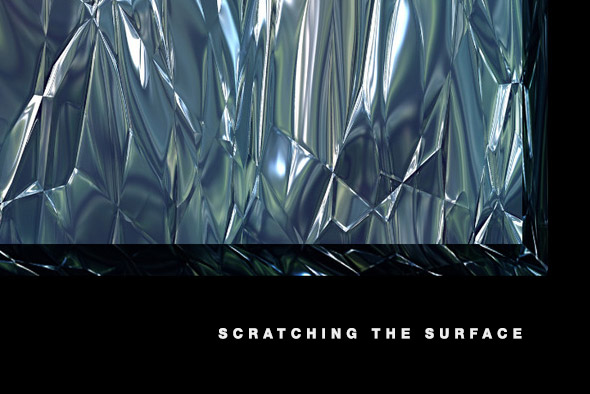
Records from Minor Science, Holly Herndon, the Mood Hut axis, Miss Modular and an unknown figure on Rush Hour come under the spotlight in Scott Wilson’s latest column.
January is usually a time where I find myself wanting to do anything other than listen to music – a kind of residual end of year list hangover if you will – which means that the idea of going to a club or buying a record just doesn’t seem to interest me. I feel like it might be something to do with the fact that although the start of a new year seems like it should provide some kind of change or break with the year before it, inevitably, we’re all still trying to clear the musical decks from November and December. This January however seems to have offered one of the most promising starts to a year for new artists and unusual music I can remember for some time, with this month’s column featuring a couple of fresh names you could genuinely class as “ones to watch” alongside a brain warping record from one of 2012’s most interesting new artists. Even the increasingly dull world of anonymous lo-fi techno seems to have been given a shot in the arm, with a record that could well be an early payday for the Discogs scalpers. In short, if things carry on like this, there’s a lot to be excited about this year.
Minor Science – Noble Gas (The Trilogy Tapes)
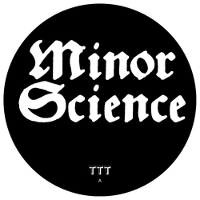
Having said all that, any uncharacteristic early January cheer I may have had was brought down by this typically unpleasant tweet from Hotflush boss Scuba: “Regardless of the complicating nature of attempting both, music critics who make music are usually shit at both. Naming no names.” Disregarding his feelings on whatever music he was talking about (and I could probably hazard a guess), his tweet nevertheless raises a fair question. Once a critic steps outside that role, and into that of creator of the art which they critique, are they compromised? Does making music mean that you are no longer entitled to review it? For what it’s worth, I don’t think so, but it does seem as if underground dance music’s insular nature and increasingly internet-driven mechanics are particularly good at fostering this kind of toxic and unhelpful notion.
This is the position that music writer Angus Finlayson – contributor for Resident Advisor, FACT and numerous other publications – has found himself in, being as he is the next artist to release a record on The Trilogy Tapes under the name Minor Science. Finlayson is a good friend of mine, and a fellow music journalist, so it stands to reason that I would naturally want to stick up for him and others in his position, but it seems that these matters are only as Scuba puts it “complicating” when there is a lack of transparency. Current underground trends have made it easy for, and indeed almost expected of people to work incognito under various aliases, and it would have been easy for Finlayson to do the same. But questions should be raised only when someone continues the role of critic whilst trying to keep their artistic endeavours in any conflicting field hidden, and Finlayson has wisely decided on the path of full disclosure. Finlayson will no doubt have to deal with more comments of Scuba’s type, and the inevitable criticism from the trolls on the Resident Advisor forums, but he should be commended for doing what is certainly the right thing in the long run.
I don’t want to turn this column into unnecessary thinkpiece, so lets move on to the point of the music itself. Despite my already stated friendship with Finlayson, I don’t think it’s improper to say that I think his debut record is really very good. That Scuba probably isn’t a fan of his music is not hugely surprising – Finlayson’s relationship with the dancefloor is obviously a much more cerebral one than Scuba’s been demonstrating over the past few years. There are traces of Madteo’s crumbly techno in its indistinct textures and sinister vocals, particularly in the turbulent seasick house of “The Beckoner”, while the delicately malfunctioning mechanical chirp of “Foggy Situation” has much in common with moments from Huerco S’ Colonial Patterns LP. “Hapless” is probably the standout track on the EP for me, driven by a resonant morse code backbone with a rolling timbre that sounds like it’s been sampled from a haunted fairground. Although we’re certainly not short of the kind of queasy, lurching house and techno that seems to have influenced the Minor Science sound, there’s a pleasingly lolling quality to Noble Gas that makes it one of the most characterful TTT releases Will Bankhead has snapped up yet. When it’s released (hopefully next month), I’ll be buying it myself, which is all the recommendation I need to give.
Miss Modular – Reflector Pack/Cruzer Edge (Her Records)
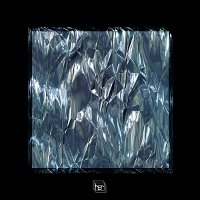 I’m not usually one to pay much attention to the “ones to watch” type of articles that usually pop up at the start of a new year – at best they’re often a cynical attempt to gain easy page views, and at worst they’re just fed to writers by the mainstream music industry in an attempt to artificially fiddle the market for the year ahead. However, credit must go to FACT for picking an interesting list of names in the world of house and techno this year, not least of which is someone who it’s fair to say few would have heard of even a month ago – Miss Modular. Whoever they are (sources suggest it’s a male adopting a female moniker), they’ve delivered something that will no doubt be rinsed in clubs across the world throughout 2014 – which considering it was released in the scheduling black hole that is Christmas Eve through the website of tiny South London label Her Records, is no mean feat.
I’m not usually one to pay much attention to the “ones to watch” type of articles that usually pop up at the start of a new year – at best they’re often a cynical attempt to gain easy page views, and at worst they’re just fed to writers by the mainstream music industry in an attempt to artificially fiddle the market for the year ahead. However, credit must go to FACT for picking an interesting list of names in the world of house and techno this year, not least of which is someone who it’s fair to say few would have heard of even a month ago – Miss Modular. Whoever they are (sources suggest it’s a male adopting a female moniker), they’ve delivered something that will no doubt be rinsed in clubs across the world throughout 2014 – which considering it was released in the scheduling black hole that is Christmas Eve through the website of tiny South London label Her Records, is no mean feat.
The sound of Miss Modular isn’t exactly revolutionary – traces of Jam City’s Classical Curves material can be heard in the rush of stabs, weird slap bass and stuttering rhythmic flow present in the 8 bar mix of “Reflector Pack”, while the fractured throb of the 4/4 mix hits the same notes as the contemporary ballroom of Fade To Mind producer MikeQ, teasing the euphoria out of a low pass filter before snapping it back like elastic to the bone dry beat. But the fact that it’s more of an evolution than a revolution doesn’t matter when it’s executed as well as it is here.
House Of Doors/Kinetic Electronix – Bicameral Mind/Astral Kin (Future Times)
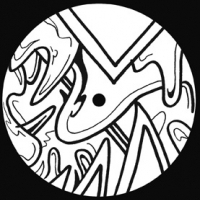
While we’re on the subject of “ones to watch” lists, the most notable omissions from every single one I’ve seen this month would surely have to be the members of Vancouver’s Mood Hut collective. It isn’t exactly surprising. Despite releasing several records last year, I’m still not quite sure how many of them there are, or if it’s just an elaborate series of monikers shared out among three very prolific individuals. They’re also the kind of group, that, by their own admission would rather shun the PR machine than use it to climb the greasy ladder of fame and fortune. Despite this, anyone who’s been paying attention in 2013 couldn’t have failed to notice at least one of the collective’s records or mixes. Be it Aquarian Foundation’s Silent Teaching EP on London-based Going Good, any of the three records on their own Mood Hut Records imprint, Cloudface’s live set on Hessle Audio’s Rinse FM show back in September, or the superb Pender Street Steppers cassette, each has shown themselves to have an understanding of how to make genuine deep house with a earworm qualities. With a clutch of records already planned for the year ahead, it seems fair to say that 2014 deserves to be something of a breakthrough year for the label. As this great video shows, they’ve been killing it on their home turf for years.
The first record from the collective this year is a split release between House Of Doors and Kinetic Electronix (apparently two of the individuals that make up the Aquarian Foundation trio), and arrives on Future Times. A union between Mood Hut and Future Times is a particularly logical one given both labels’ similarly lush take on house music. Like the music of Max D, there’s nothing particularly jarring about these tracks – they don’t trade in distortion or purposefully lo-fi textures, they’re built for the floor but could just as easily swim around in your headphones with as much purpose. House Of Doors’ “Bicameral Mind” (which is here mixed down by Max D himself) has that irresistible combination of tough, dense bass and light drum fills that practically scream to be played in a sweaty basement. Kinetic Electronix’ “Astral Kin” meanwhile is the kind of record whose looping disco sample takes me right back to 2008. It’s hard to pinpoint what makes this track so much better than almost any of the edit house fodder that brought everything to a stuttering halt a few years back – a lightness of touch perhaps, a sense of freshness – perhaps even just the way it goes into dubbed out spaciousness towards the end? Sometimes people just have the magic touch, and Mood Hut evidently have more than enough to go around.
Holly Herndon – Chorus (RVNG Intl)
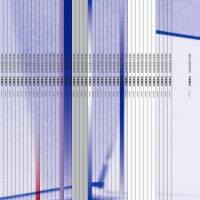 I have to admit that I struggled with Holly Herndon’s debut album Movement. It didn’t really seem overly sure what space it was fitting into – tracks like “Fade” and “Movement” seemed aimed at the club while “Breathe” and “Dilato” used granular methods to dissect vocals at the atomic level. Movement was not a bad album – far from it – it just felt short of achieving a middle ground between the two poles. In short, there just wasn’t anything that (no pun intended) moved me all that much. Her new two-track Chorus single apparently comes ahead of a mooted second album for RVNG Intl, and in six short minutes the title track addresses every shortcoming I had with her earlier material.
I have to admit that I struggled with Holly Herndon’s debut album Movement. It didn’t really seem overly sure what space it was fitting into – tracks like “Fade” and “Movement” seemed aimed at the club while “Breathe” and “Dilato” used granular methods to dissect vocals at the atomic level. Movement was not a bad album – far from it – it just felt short of achieving a middle ground between the two poles. In short, there just wasn’t anything that (no pun intended) moved me all that much. Her new two-track Chorus single apparently comes ahead of a mooted second album for RVNG Intl, and in six short minutes the title track addresses every shortcoming I had with her earlier material.
It’s a track that in many ways recalls the hyperreal palette of Oneohtrix Point Never’s R Plus Seven album, opening with a fractured backdrop of synthetic vocals shunted through the octaves. Like his stunning track “Chrome Country”, it builds to a shamelessly emotive climax but “Chorus” takes those textures and places them in a very tangible three dimensional space, while melodically, it works for the same reason that early pop cutups of The Field did. Where his early tracks for Kompakt might be somewhat dated in comparison to Herndon’s tracks, they constructed pulsating stacks of euphoric sound which is quite reminiscent of “Chorus”. But where The Field’s euphoria was contained along a trundling X axis, Herndon’s creates the kind of music designed for an Oculus Rift headset, introducing Y and Z to the equation to create a tangible depth of field. On the basis of Akihiko Taniguchi’s video for “Chorus”, which depicts rotating 3D renders of desktop captures, a sense of physical space in music must be something on Herndon’s mind as well. It’s something that wasn’t quite there on Movement, but this absolutely nails it.
##### – ##### (Rush Hour)
Is this the ultimate in anonymous vinyl-only dance music? No artist name, no track names – just a series of hashtags and two heaving techno tracks differentiated by a yellow side and a blue side. But like all of Rush Hour Distribution’s No ‘Label’ releases, there’s something different about these tracks. It’s unquantifiable – these crunchy deep house numbers could easily pass for a record on L.I.E.S. or The Trilogy Tapes, but there’s a seratonin rush here you don’t just find anywhere. “#####.1” is shamelessly emotive, with ochre sky chords that drag you into some imagined cityscape at dawn, while “#####.2” opts to wrongfoot you with its squashed acid bassline and powerful kicks, but the chord breakdown is just as euphoric – despite being something of a more severe reprise of the yellow side.
There’s something about these tracks that fans of Breaker 1 2’s record for Forbidden Planet last year will probably appreciate, especially in its highly mechanised rhythms and the fuzzy hot water bottle warmth brought on by its grubby chords. The more floor-focused moments of Actress’ Ghettoville LP are somewhat similar too, but there’s an equal amount of the classicist deep house of Simoncino present as well. I could sit here and speculate all day, but whoever may have made these tracks, there’s that nagging sense – as I get with most of Rush Hour’s No ‘Label’ releases – that if you don’t buy it now, you’ll regret it somewhere down the line.
Scott Wilson